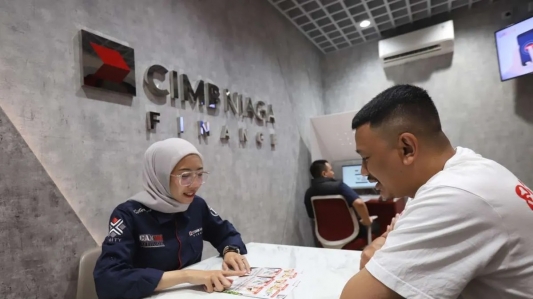October 22, 2025
Rasio BOPO Multifinance Naik, Begini Kondisi Sejumlah Pemain

KONTAN.CO.ID - JAKARTA. The Financial Services Authority (OJK) recorded an increase in the operating expense to operating income (BOPO) ratio for multifinance companies in June 2025, reaching 80.46%. This compares with 79.75% in June of last year.
By the end of the third quarter of 2025, PT CIMB Niaga Auto Finance (CNAF) recorded a BOPO ratio of 72%, an increase of approximately 4% compared to 68% in the third quarter of 2024.
CNAF President Director Ristiawan Suherman explained that the increase in the ratio was primarily due to an increase in bad debt provision expenses.
"Weakening consumer purchasing power has had a domino effect, impacting customers' ability to pay," Ristiawan told Kontan on Tuesday (October 21, 2025).
Nevertheless, CNAF stated that it would maintain operational efficiency, especially amidst the pressure of slowing credit distribution. One of the steps taken is diversifying customer segments to improve financing quality and manage operational costs and portfolios more effectively.
"In 2025, we are striving to maintain the BOPO ratio, one of which is by boosting the company's revenue and focusing on productivity," he said.
In addition, CNAF is also seeking competitive funding sources to reduce interest costs. This strategy is expected to help maintain the company's BOPO ratio at a healthy level amidst challenging market dynamics.
"We will also continue to strive to find competitive funding sources to minimize interest costs," he explained.
Meanwhile, PT Mandiri Utama Finance (MUF) claims that its BOPO ratio will remain at a healthy level until the third quarter of 2025. Unfortunately, the company did not specify the amount.
MUF Director, Dapot Parasian Sukoco Sinaga, stated that the ratio is the result of efficiency and the company's strategy to continue investing in operational strengthening.
"We are striving to maintain efficiency by continuing to invest in digital development, improving service quality, and strengthening operational infrastructure," Dapot told Kontan on Tuesday (October 21, 2025).
He explained that the recent increase in the industry's BOPO ratio is in line with the company's strategy to strengthen operational capacity to support financing portfolio growth.
According to him, investments in digitalization and improving operational capabilities do have a temporary impact on efficiency, but are a long-term strategic step.
Dapot said that in terms of provisions for non-performing loans, MUF continues to adhere to prudent principles in managing financing risks.
"Credit distribution growth remains healthy, but is balanced by strengthening portfolio quality and disciplined risk management. We ensure adequate provisioning levels to anticipate potential financing risks," he explained.
To maintain a manageable BOPO ratio, MUF is strengthening operational efficiency through business process digitalization, cost optimization, and productivity improvements across all lines.
Furthermore, the company is also focusing on expanding service-based revenue sources so that operating income growth can balance cost burdens.
"With this strategy, MUF is optimistic that it can maintain a healthy efficiency ratio while maintaining competitiveness in the multifinance industry," he said.